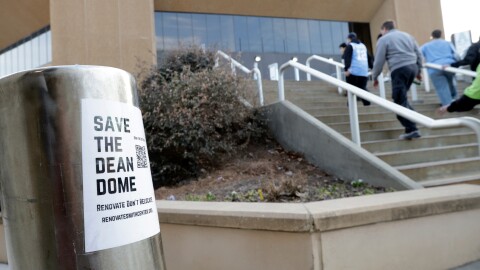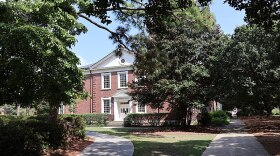-
North Carolina is mulling options for whether to renovate the 40-year-old Smith Center or relocate to a new basketball arena in the coming years.
-
Chapel Hill-Carrboro City Schools will consider closing up to two elementary school buildings and redistricting all its students due to falling enrollment and budget pressures.
-
Faculty across the UNC System are expressing increased concerns that their safety is at risk following the new UNC System policy that all class syllabi be posted in an online database.
-
The Trump administration says that 31 universities, including Duke University, have agreed to cut ties with a nonprofit that helps racial minorities earn doctorate degrees.
-
On average, North Carolina is slightly ahead of the rest of the country in terms of getting kids ready for kindergarten – but children from lower-income families are lagging behind their peers, new federal data shows.
-
The North Carolina State Board of Education has approved its annual list of funding request priorities ahead of the General Assembly’s short session in April.
-
North Carolina schools saw a decrease in crimes for the third year in a row last school year, according to the latest numbers from the state Department of Public Instruction.
-
The private institution merger will impact nearly 9,000 students and involve $2 billion in university assets.
-
Some faculty members say the "lengthy and vague" policy is a threat to academic freedom in itself and fear it can be used to retaliate against professors who teach unpopular subjects.
-
Chapel Hill trustees committee approves $8 million for Carolina North amid arena relocation concernsIt's taken nearly 20 years for administrators to start development on the mixed-use campus, which is set to combine housing, research, and retail facilities. Some are worried the development will also involve moving a beloved basketball arena.
-
Elon University announced Tuesday it applied to the American Bar Association for approval to launch a full-time, 2.5-year juris doctor law school in Charlotte.
-
Hundreds of teachers called out of work to hold protests across North Carolina today in support of better teacher pay and the lack of a state budget, which has stymied potential raises for state employees like educators.















